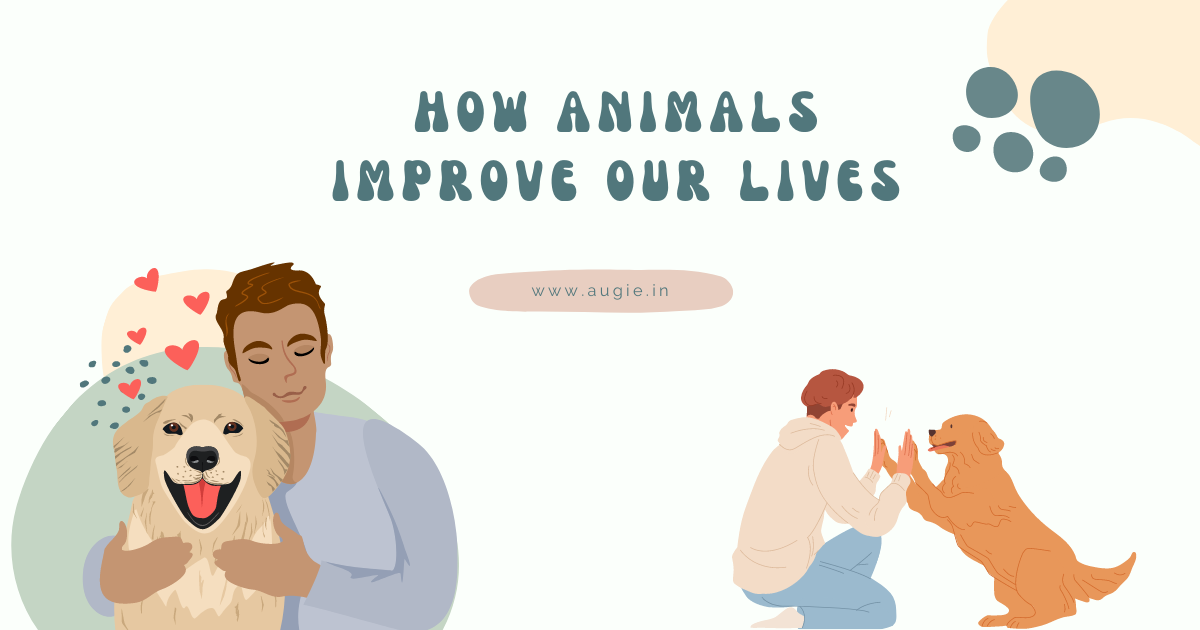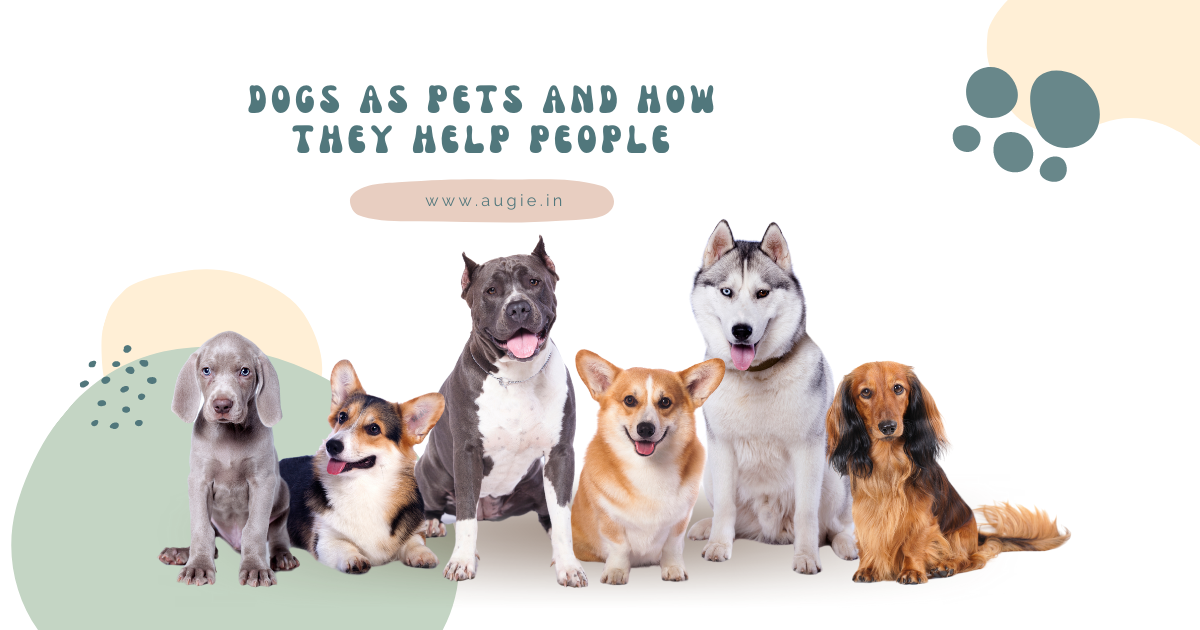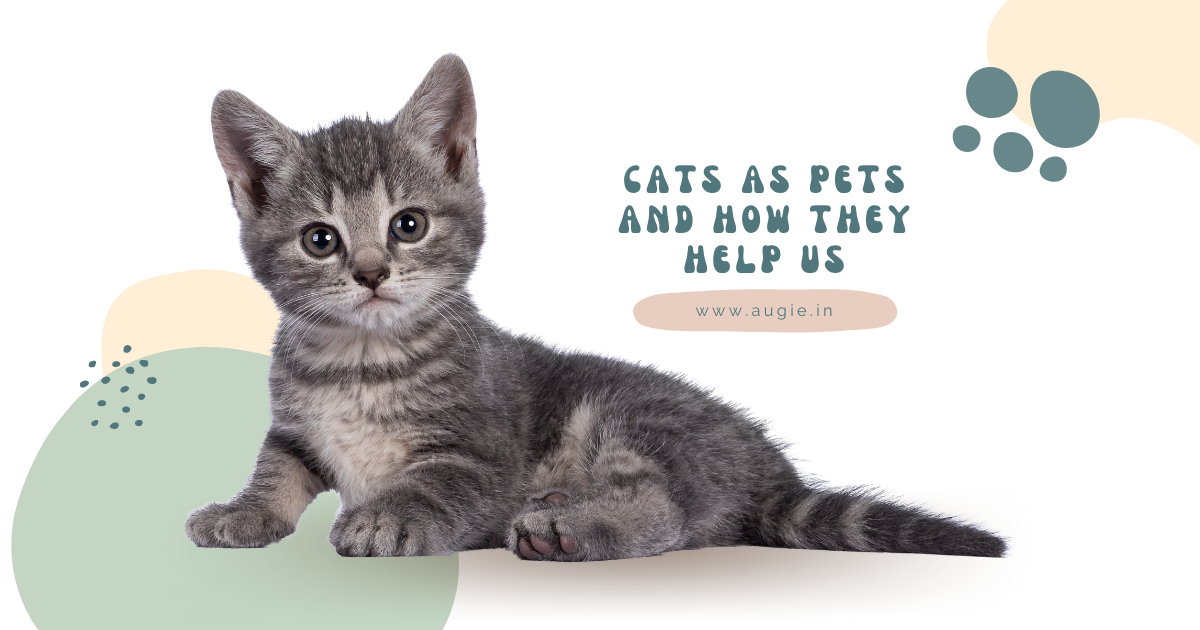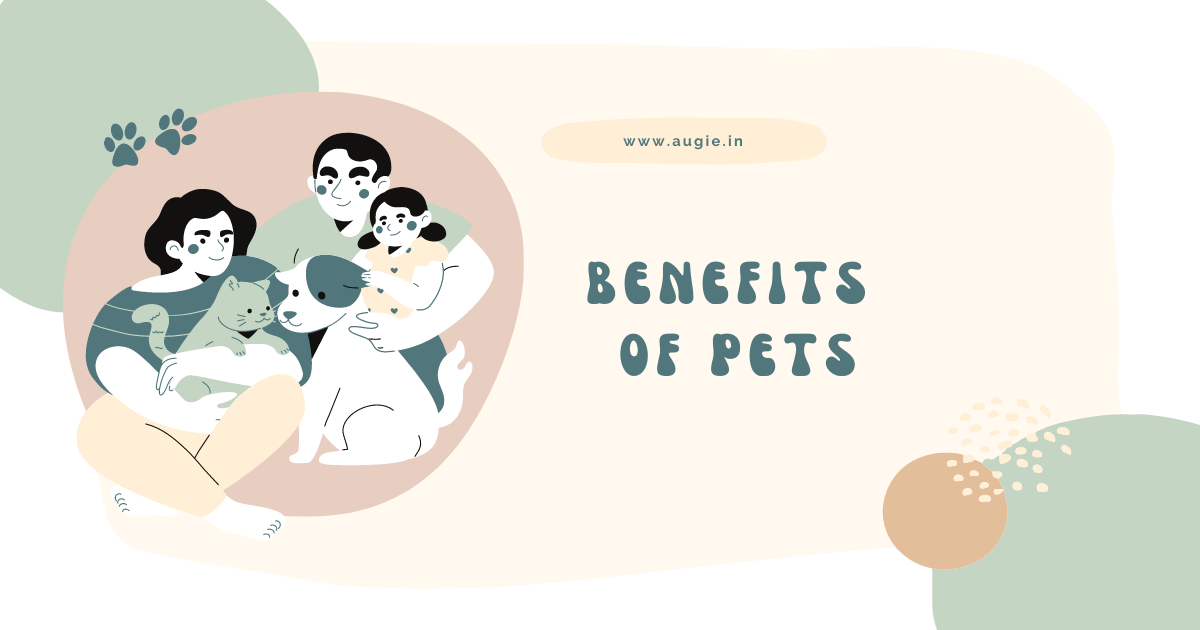How pets make our lives better Scientifically explained
Nothing beats the feeling of coming home to a faithful partner. A pet's unconditional affection may do more than just keep you company. Pets may also aid youngsters with their emotional and social abilities, as well as reduce stress and enhance heart health, are just the basics of the true power of pets.

Human-animal interactions research is still in its infancy. Some research have found that it has favourable health benefits, although the results are equivocal. Interacting with animals has been found to lower blood pressure and lessen cortisol (a stress-related hormone) benefits of pets.
Animals have also been shown to alleviate loneliness, promote emotions of social support, and improve happiness in other research.
Despite all of the benefits of pets, it's vital to realise that having a pet isn't a cure-all for mental illness. Only those who love and respect domestic animals, as well as those who have the time and money to maintain a pet happy and healthy, will find owning a pet helpful and comfortable.
Pet ownership will not give you with any health benefits of pets or improve your life if you are just not a "animal person." In America, being a pet is a lucrative job. Pets are adored: according to a 2015 poll, 95% of pet owners consider their animal to be a member of the family.
Approximately half of them buy them birthday presents. It's also a two-way road. People who have pets have lower blood pressure, heart rates, and are less likely to develop heart disease than those who do not.
Those health benefits of pets might stem from the extra activity that playing and walking demand, as well as the stress reduction that comes with having a reliable best friend by your side.
Scientists are now uncovering evidence that animals can assist individuals with difficult diseases better their mental health benefits of pets.
Despite the modest size of the research, the advantages are compelling enough that clinical settings are opening their doors to animal-assisted interventions—or, in other words, pet therapy—as a supplement to traditional treatment.
The growth of animal therapy benefits of pets is underpinned by growing scientific evidence that social support, a proven cure to anxiety and loneliness, may arrive on four legs, not just two.
Animals of all kinds may assist young children, the elderly, and everyone in between cope with stress, fear, and anxiety.
More study is required before scientists can determine why it works and how much animal interaction is required for optimal outcomes.
Published research, on the other hand, demonstrate that paws have a role in medical and mental health benefits of pets.
The following are the benefits and advantages of having pets just in case you are wondering about what are the benefits of animals?
Dogs as pets and how they help people:
Animals may provide a sense of security and comfort. This is something that therapy dogs excel at.
They're occasionally introduced into hospitals or nursing homes to assist people cope with stress and anxiety.

Dogs may improve our health not only as we become older, but also much, much earlier: even before we are born this is one of the benefits of pets.
Children who were exposed to dogs while still in the womb — as their mothers spent time with dogs during pregnancy — had a decreased chance of acquiring eczema in early infancy, according to research published last year there are just a few examples of how do pets help humans.
During the epidemic, many of us were quite stressed and nervous. We don't know when we'll be allowed to walk about freely again, our employment might be jeopardised, and we're afraid of getting the virus or spreading it to others.
We also can't do many of the activities that normally help us cope with stress, such as going to the gym or having dinner with a group of friends.
It does become hard not to smile when you are greeted with a dog after a long day at work. Your day and mood instantly becomes better.
This is explained by what is called “The oxytocin effect”. Whenever, we interact with dogs our body’s oxytocin’s levels rise. This hormone is responsible for our social bonding as humans and improves our overall psychological and mental well-being.
Previous research examined in the paper found that dog owners had more benefits of pets favourable social interactions and that having canine companions makes individuals more trusting...and deserving of trust yet another example of how animals improve our lives.
Dogs also appear to decrease depressive symptoms and make individuals more robust to stress. As a result, benefits of pets are frequently utilised as therapy animals.
The complex sense of smell of dogs has piqued the medical community's interest in employing these animals to assist identify human illnesses and research the benefits of pets for human health enable individuals who suffer from them live more meaningful lives.
Because of the changes that occur within the body, with various organs expressing different chemical substances, we believe that all illnesses have a fragrance connected with them. These odours can be detected in the breath and perspiration.
There is evidence that having a dog in the house can help us connect with other people. People acted more trustworthy, pleasant, and cooperative in the company of a dog, according to one research.
Although this study was conducted in a work group, the same may be said for those of us who work and live-in close quarters.
Another study discovered that people perceive persons who are out and about with a dog to be more accessible than those who are not. People walking their dogs are also more likely to be assisted by strangers if they "accidentally" drop some money in the street.
Pet owners had substantially lower heart rates, arterial pressure, and systolic blood pressure, according to an analysis of several research papers, implying improved cardiovascular health.
Some of this may be due to the fact that most dogs require walking, and so dog owners prefer to walk more. But dogs are the best pets for mental health.
However, there are likely to be more puzzle pieces. It's possible that adopting a needy animal has its own set of benefits of pets, as doing good makes us happier and healthier.
Surprisingly, the number of individuals ready to foster a pet has increased during COVID-19, owing in part to the fact that more people are working from home and can thus meet a pet's requirements more readily.
Cats as pets and how they help us:
Adopting a cat may also be beneficial to your children: Kids who had a close relationship with their cats had a greater quality of life and benefits of pets, according to a poll of more than 2,200 young Scots aged 11 to 15 in a research conducted to get pet and mental health statistics.
They felt more healthy, active, and attentive, and less unhappy and lonely, the more attached they were, and the more they liked their time alone, at leisure, and at school.
Cats may also be able to coax us out of our funks with their gravity-defying antics and yoga-like napping positions. Persons with cats reported having less unpleasant emotions and feelings of solitude than people without cats, according to one research on benefits of pets.

In fact, singles with cats were less likely to be depressed than those who had both a cat and a spouse. Researchers visited 120 married couples in their homes in one study to see how they would react to stress—and whether cats may help.
People were put through a gruelling series of activities while hooked up to heart rate and blood pressure monitors, including subtracting three from a four-digit figure repeatedly and then putting their hand in cold water (below 40 degrees Fahrenheit) for two minutes.
People sat alone in a room with their pet, with their spouse (who might give moral support), or both in a room. Cat owners had a lower resting heart rate and blood pressure than those who did not own any benefits of pets before the stressful duties began.
The cat owners also performed better throughout the tasks: they were more likely to feel challenged rather than intimidated, their pulse rate and blood pressure were lower, and they made less math mistakes this is an example of how can pets make you happy and improve your life.
When their cat was there, cat owners appeared the calmest and made the fewest faults of all the scenarios.
Cat owners, on average, recovered physiologically faster.
Finally, despite what you may have heard about cat-to-human brain parasites, there is some evidence that cats may benefits of pets for health. Researchers tracked 4,435 participants for 13 years in one study.
Even after controlling for other risk variables such as blood pressure, cholesterol, smoking, and body mass index, persons who had previously had cats were less likely to die of a heart attack at that period.
The researchers add that this was true even if the patients didn't have cats at the time, implying that cats are more like preventative medication benefits of pets than therapy for an ongoing condition.
Other pets:
Guinea pigs: Children with autism were more sociable with their peers, smiled and laughed more, and showed fewer indications of stress when they had a guinea pig in the classroom.
Fish: Animals have the ability to focus people's attention it is one of benefits of pets. People with Alzheimer's disease ate more, obtained better nutrition, and were less prone to pacing when they ate in front of aquariums with vividly coloured fish. They were also more alert and less drowsy.
Horses: Horses have been used in medical treatment programmes of benefits of pets in Europe since the 1860s, making them one of the most researched therapy animals. Grooming a horse and guiding it around a corral have been found to help children and adolescents with PTSD symptoms.
Rabbits: A worried group of adults was advised to pet a rabbit, a turtle, or their toy versions in one research. The toys were ineffective. Stroking a living species, whether hard-shelled or fuzzy, did, nevertheless, help to alleviate anxiousness its is benefits of pets. It worked for everyone regardless of whether they claimed to appreciate animals at first.

Choosing the right pet:
While having a pet makes individuals happier, more independent, and more secure than those who don't enjoy benefits of pets, it's vital to choose the right pet for your requirements and lifestyle.
Discuss your preferences for a pet with the rest of your family and come up with a list of traits you'd like to see in a pet and those you'd rather avoid.
Man's greatest friend, dogs, come in a variety of varieties or mixes of breeds, each with its own set of personality qualities. If you want something smaller and less energetic, a cat or a rabbit could be the ideal choice for you and your family but with all benefits of pets.
Asking yourself a series of questions before visiting a shelter is the first step in determining whether a dog, cat, rabbit, fish, bird, hamster, or guinea pig is the perfect pet for you. "How would i describe my way of life?"
If you are only home sometimes, a dog that requires a lot of care and regular walks is not a smart option.
Your cat can take care of herself for eight to ten hours a day if you provide her enough food and drink to keep her going until you return. "How can I find one who is a good match for my personality?"
Perhaps you're an extrovert. Dogs are excellent pets for extroverts since they are naturally sociable, and you may meet a lot of new people on your regular walks.
Those of us who want peace and quiet may prefer to live with a cat or a rabbit, which express affection in a much more subdued manner. Fish are excellent quieter pets.
Choosing a pet isn't always as straightforward as ticking a few boxes in your head. Perhaps you believe a dog would be the ideal companion for you, but it turns out a rabbit or bird is your animal soulmate.
Some concluding pointers!
- There are numerous benefits of pets for human health.
- More study is required before scientists can determine why it works and how much animal interaction is required for optimal outcomes.
- People acted more trustworthy, pleasant, and cooperative in the company of a dog.
- Cat owners, on average, recovered physiologically faster, despite what you may have heard about cat-to-human brain parasites
- Discuss your preferences for a pet with the rest of your family and come up with a list of traits you'd like to see in a pet and those you'd rather avoid.
We have an ideal mix of Products and Services that can aid you in your efforts to take care of your pets. We work with different pets viz. Dogs / Cats / Other pets
You can reach out to us and we can aid you. Looking forward to working with you
Have a great Day Ahead!!





